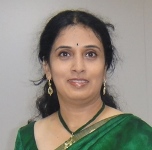Healthcare and Project Management
SERIES ARTICLE
By Dr. Deepa Bhide, MBBS, DCH, PMP
Hyderabad, India
Abstract
We live in the age of knowledge. Knowledge workers are the critical resource, armed with tools to create, access, apply, and transfer knowledge as crucial success factors. However, a critical impediment to the goal of healthcare is the need for sufficient knowledge to perform activities of the healthcare value chain. Therefore, it’s essential to break down knowledge silos to allow a free flow of knowledge for consumption.
Knowledge transfer in healthcare refers to sharing and disseminating information, skills, and expertise among healthcare professionals, researchers, and stakeholders to improve patient care and outcomes. It involves the exchange of best practices, evidence-based interventions, and research findings to enhance the quality, safety, and efficiency of healthcare delivery.
This paper discusses various knowledge forms and knowledge-sharing methods within the healthcare system. The article also discusses impediments to knowledge transfer and ways to facilitate knowledge exchange.
Key terms: Knowledge Management (KM); knowledge transfer; lessons learned; communication; Artificial Intelligence (AI)
Mary*: Hello, doctor. Good morning. How are you today?
Author: Good morning, Mary. I am fine. Thank you! Over the past few months, we have covered many topics ranging from a generic industry perspective, the universe of projects, ethics in healthcare, patient care as a project, project management methodologies used in healthcare projects, shortages in healthcare, team management principles, etc. As discussed in global healthcare project management1, knowledge management is another critical topic. We also wanted to cover feedback management in healthcare projects. Let’s discuss that today.
Mary: That’s a great idea. It will complete the vital pieces of this healthcare and project management puzzle.
Author: Knowledge management (KM) is vital in healthcare. What do you think?
Mary: Yes. As in all other industries, KM plays a pivotal role in healthcare. The sector is litigation-prone, compliance-obsessed, and collaboration-dependent, so KM is even more key to healthcare. I know that structured, standardized documentation of the policies and protocols and clinical documentation related to patient care helps avoid medical malpractice. Healthcare professionals collaborate through patient-related documentation to discuss specific diagnostic or therapeutic modalities. More importantly, KM is a lifeline for healthcare professionals, and in need of support, they can reach out to the knowledge base for clinical insights.
Author: You are right. Let’s look at a few instances of KM.
Here’s an exciting story2 from Nightingale Hospital, UK, during the Coronavirus pandemic. In a time of uncertainty in medical decision-making, insights from front-line staff were critical to gaining knowledge about the virus and its impacts. The healthcare workforce depended on limited data and the expert advice of colleagues worldwide who cared for COVID-19 patients. In the face of a lack of clinical leadership, doctors were reaching out for advice from evidence-based strategies, high-impact medical journals and academic institutions, and more informal networks to get the information and support they need, which can include notes from fellow workers. One such system, the “Bedside Learning Coordinator System” (BLC), was trialed at the Nightingale Hospital London. Using a semi-structured form, BLCs captured insights and observations from the staff about what was and was not working well. As a result, the team of Nightingale Hospital came together to update a treatment algorithm for COVID-19 based on the latest evidence of treatment practices from those who delivered patient care. This system based on agile and adaptive developmental approaches was an excellent example of knowledge creation. It exemplified nano-agility in KM to tide over the crisis and work as a life-saving measure for the patients suffering from the Coronavirus.
Let’s look at another example…
More…
To read entire article, click here
Editor’s note: This series of articles about project management in healthcare is by Dr. Deepa Bhide, a pediatrician with additional experience in information technology and project management. Being a physician herself, she has recently experienced healthcare from a patient’s perspective while recovering from a broken ankle. In this series, Dr. Bhide discusses programs, projects, and project management in various aspects of healthcare from industry, provider, and human patient perspectives. Learn more about Dr. Bhide in her author profile at the end of this article.
How to cite this paper: Bhide, D. (2023). Knowledge Management in Healthcare Projects, Healthcare and Project Management, series article, PM World Journal, Vol. XII, Issue XI, November. Available online at https://pmworldlibrary.net/wp-content/uploads/2023/11/pmwj135-Nov2023-Bhide-Knowledge-Management-in-Healthcare-Projects.pdf
About the Author

Dr. Deepa Bhide
Hyderabad, India
![]()
Dr. Deepa Bhide, MBBS, DCH, PMP, has over 20 years of professional experience where she has blended medical practice and research with IT and Project Management. She juggles consulting, training, and operations and is proficient in clinical medicine, project management, and healthcare information technology. Starting her career as a medical practitioner, she has worked with varied organizations before her current stint as director and clinical expert for Inventurus Knowledge Solutions.
Deepa’s growing interest and work in these areas, born from her day-to-day patient interactions, helped her view Project Management as a backbone of progressive healthcare. Her paper on “Patient Care – A Project Management Perspective” has received global recognition and acclaim. With a physician background as a solid foundation to leverage IT/PM skills and knowledge, Deepa has blended her broad-based experience and learnings to present a unified, holistic, and wholesome view of Project Management and Healthcare, a cross-domain confluence. Through various webinars, events, talks, and writings across platforms, Deepa has been an evangelist in championing global project management during the COVID-19 pandemic.
A Gold medalist from Osmania University for standing First in the MBBS course, she pursued her DCH in Pediatrics and Child health. Deepa has served various roles in local and global Project Management Institute (PMI) regions. She remains actively engaged with PMI and has been a participant and speaker for various national and global meetings and online events.
Deepa lives in Hyderabad, India, and loves traveling, singing, and experimenting with global cuisine. She can be contacted at deepa.bhide@gmail.com.
To view other works by Dr. Bhide published in the PMWJ, visit her author showcase at https://pmworldlibrary.net/authors/dr-deepa-bhide/









